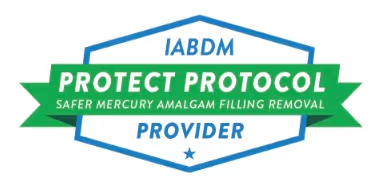I have dental anxiety. How can I control it?
First, we are very sympathetic to your plight! Many of our patients suffer from dental anxiety. We use several methods in our office to help control dental anxiety. They include, in order mildest to strongest:
- Homeopathics and essential oils
- Nitrous oxide
- Oral sedation
- IV sedation
What natural methods can be used to control anxiety in the dental office?
Many of our patients experience white coat syndrome. Just walking into the dental office can induce anticipation anxiety. So we have done much study to find more natural solutions to help resolve mild anxiety that would not impair a person in being able to drive and function. Virtually anyone can use homeopathics, essential oils and mild supplements for anxiety control. Aconitum is a wonderful homeopathic for anticipation anxiety. Lavender essential oil has been proven to calm an agitated person. Magnesium is also a good supplement to help induce calm in a dental environment.
What if the natural methods are insufficient?
We completely understand when anxiety is stronger than a natural method can control. We are licensed to do level 1 sedation in our office. That means we can use nitrous oxide and/or a single oral anti-anxiety medication to help control that anxiety. This method works the vast majority of the time, and our patients eventually find that their experiences are so good that they no longer need sedation after a time.
.avif)
.avif)
What about IV sedation?
Some of our patients have extensive restorative needs, or simply such trauma from previous dental experiences that they prefer to sleep through their procedure. For their needs, we have a board-certified dental anesthesiologist MD come to our office to administer any IV sedation drugs and keep our patients safe during their procedures.
What is IV Sedation?
IV sedation is typically necessary for oral surgeries and more complicated dental procedures. It involves placing a small IV into the arm and delivering a safe sedative into your system. You will slowly enter a sleep-like state, making the procedure more comfortable and easier for you. IV sedation is safe for most patients, and it's often needed if you'll be undergoing more invasive treatments.
Why is IV Sedation needed?
There are a few reasons for why IV sedation might be the best option for you. You might be undergoing oral surgery or an incredibly complicated procedure and would rather be asleep for it. Likewise, we might recommend this sedative if you are unable to sit still or relax for treatment. IV sedation can take the trouble out of sitting for treatment, and you'll find it's easier for both our staff and yourself.
Who is a candidate for IV Sedation?
Most patients coming into our office are good candidates for IV sedation. We will review all health and medical history prior to suggesting any type of sedative. If you are unable to undergo sedation, it is important that you tell us this during your appointment. IV sedation can be used on both children and adult patients who may need it.
What happens during IV Sedation?
The process begins by sitting you comfortably in one of our operatories and chatting with our board certified anesthesiologist to ensure you have not eaten or drunk anything within the previous 8 hours and to go over the informed consent forms. He then places a small IV into your arm to deliver a safe, effective sedative into your system. Within about 8-10 minutes, you will begin to enter a sleep-like state. We then perform your procedure while our anesthesiologist keeps you monitored and ensures a very safe, predictable experience. Once finished, the IV is removed from your arm and you start waking up. You are given enough time to wake up so that you can leave the office with your escort. It is important that you have a friend or relative there who can bring you home from the appointment when needed.
If you would like to learn more about the dental anxiety control in our office, please call our office today and one of our helpful staff members will be happy to further assist you.








